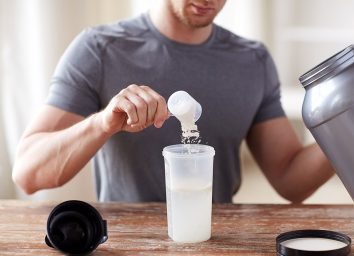10 Worst Eating Habits for Men

Following a healthy diet can be tricky, especially when you're dealing with stress and even an unpredictable schedule—many Americans are still struggling to navigate work-life balance as they continue to work from home.
In general, it can be challenging to find time to make healthy snacks or even just sit down to enjoy a meal. While this could happen to anyone, there are a few unhealthy habits that may be more likely to occur within men. As one report suggests, males are more likely to value meat more highly than females, which could indicate that they feel apt to eat it regularly, whereas women tend to eat it less frequently. Additionally, a 2018 study from the CDC found that men were more likely than women to eat fast food at lunchtime. On the contrary, women were more likely to get a fast food item as a snack—not an entire meal.
Regardless, there are several ways men can adopt healthier habits, all while reducing their intake of red meat, fast food, and other unhealthy options. The first step, however, is identifying which habits are not conducive to a healthy lifestyle.
Below, you'll see the 10 worst eating habits men may be more prone to as well as tips on how to reverse them. And after, don't forget to read the 21 Best Healthy Cooking Hacks of All Time.
Eating excess protein
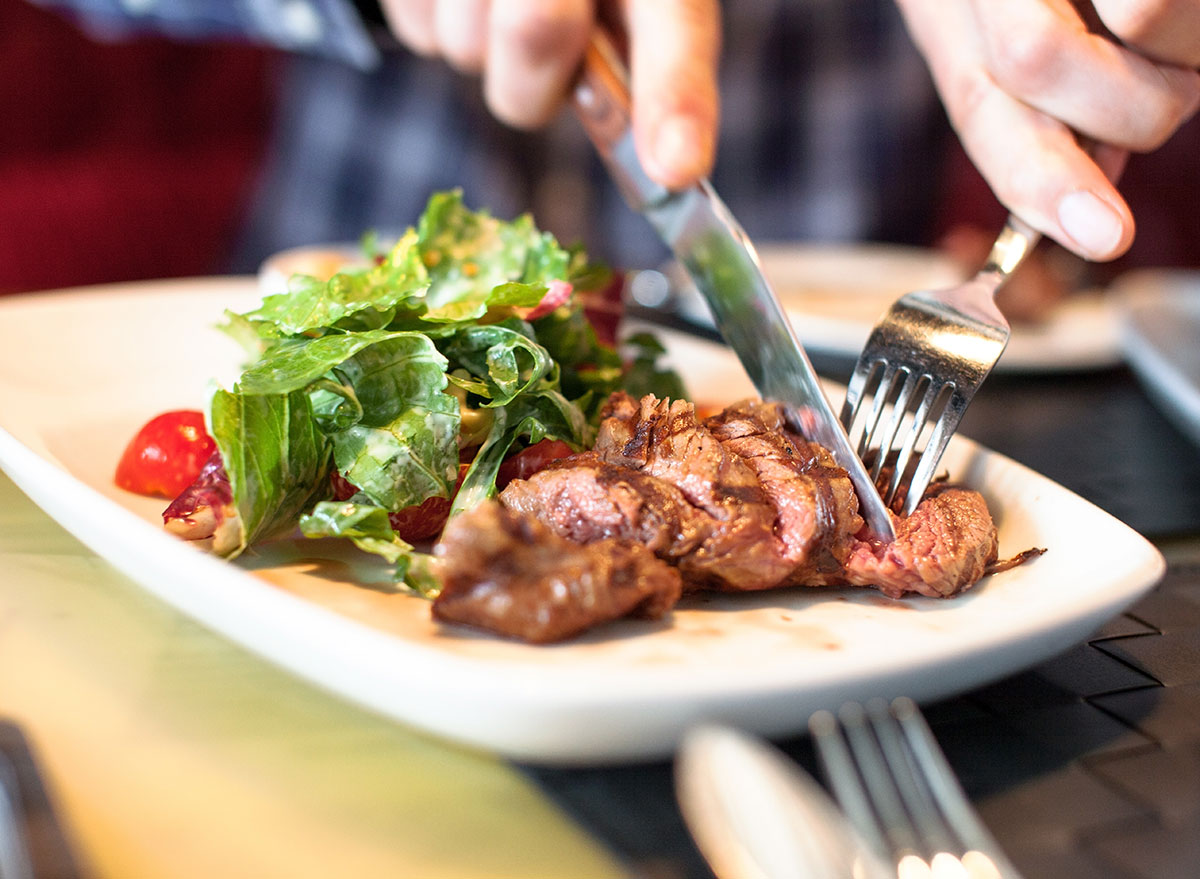
Men—especially those who are physically active—often think that eating more protein than what's typical is necessary for bulking up. However, a health expert disagrees and says the opposite may actually be true. "In reality, if you're looking to best support improvements in fitness and even muscle gain, you may want to reduce your portion sizes of protein and allow yourself a little more carbohydrate," says Kelly Jones, MS, RD, CSSD, LDN.
"Since carbs are the most effective energy source for exercising muscles, it's important to eat enough of them so that protein can be used for muscle repair and it's many other body processes," she adds. Plus, the body can only metabolize about 30 grams of protein per hour, so get your fill but don't go overboard because ultimately that extra protein amounts to excess calories and can then be stored as fat.
Taking too many supplements
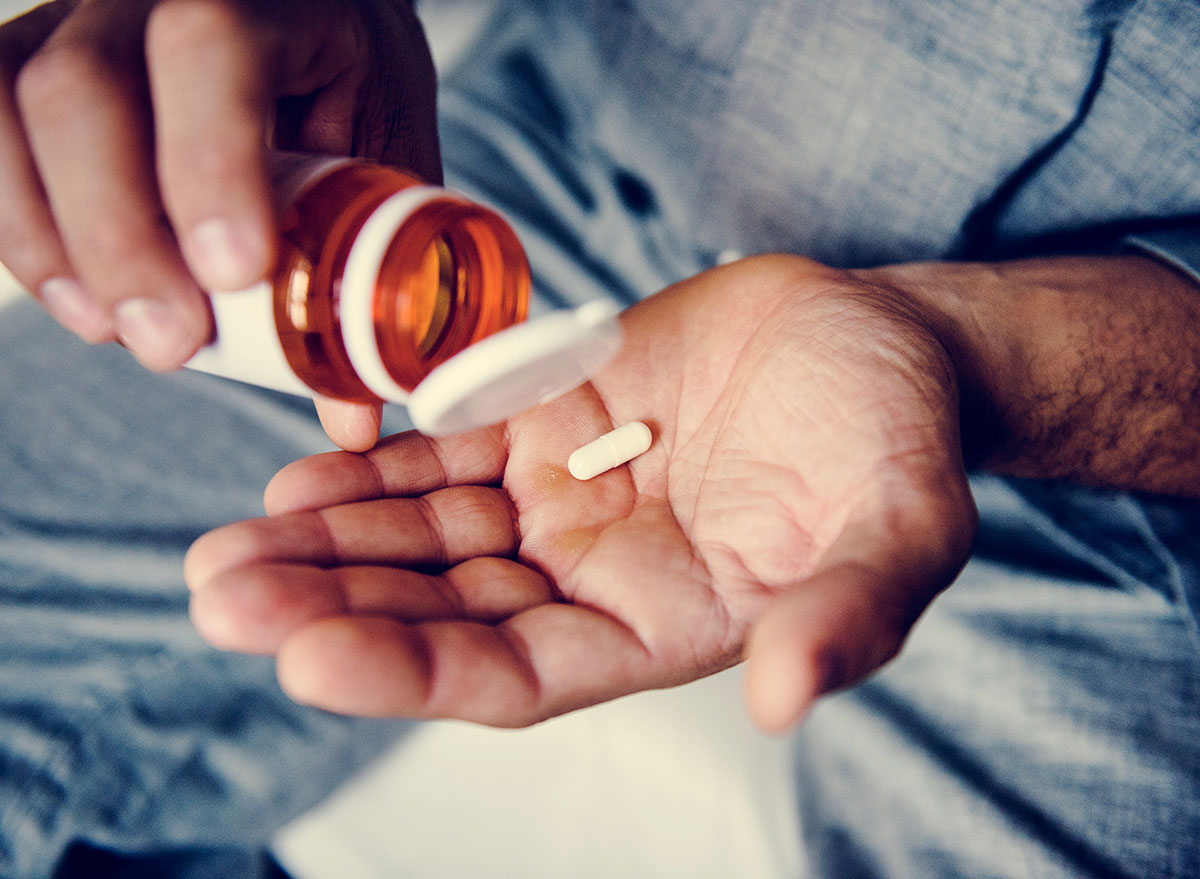
While supplements may seem like an efficient way to boost your levels of essential vitamins and minerals, it's not the most effective route and can also be indicative of a greater issue at large.
"Whether it's protein powders, shakes, and bars, or too many other pills and powders, a large emphasis on supplements often means an inadequate focus on eating an adequate amount and variety of whole foods," says Jones.
Be sure you get all of your supplements, including the brands, approved by your doctor or a registered dietitian before taking them. As Jones says, the focus should be centered around getting a majority of nutrients from whole foods, not pills and powders.
Ditching nightshades
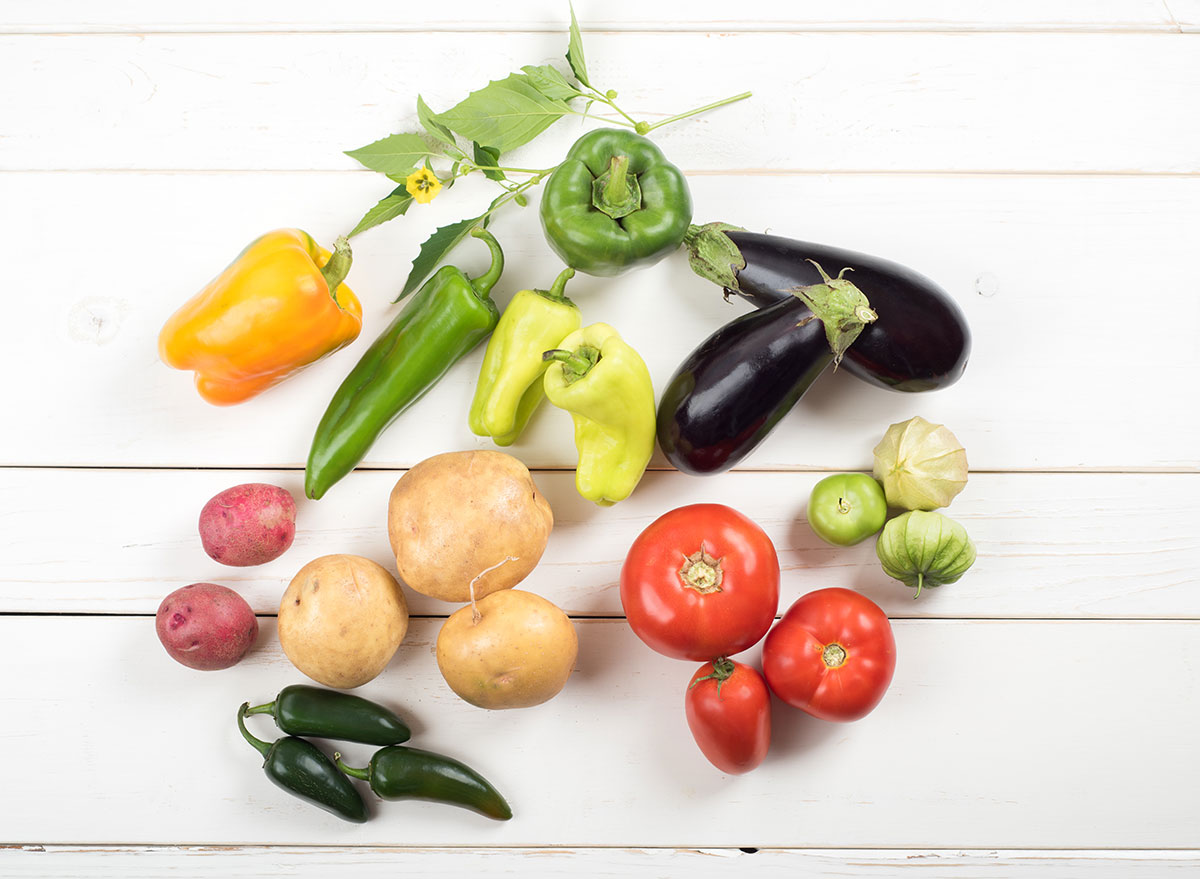
Just because Tom Brady doesn't eat this group of vegetables doesn't mean you should follow suit.
"In fact, tomatoes and red bell peppers are associated with a reduced risk of prostate cancer, and potatoes and bell peppers are an excellent source of vitamin C and a good source of heart-healthy potassium," says Jones.
Not consuming enough fish
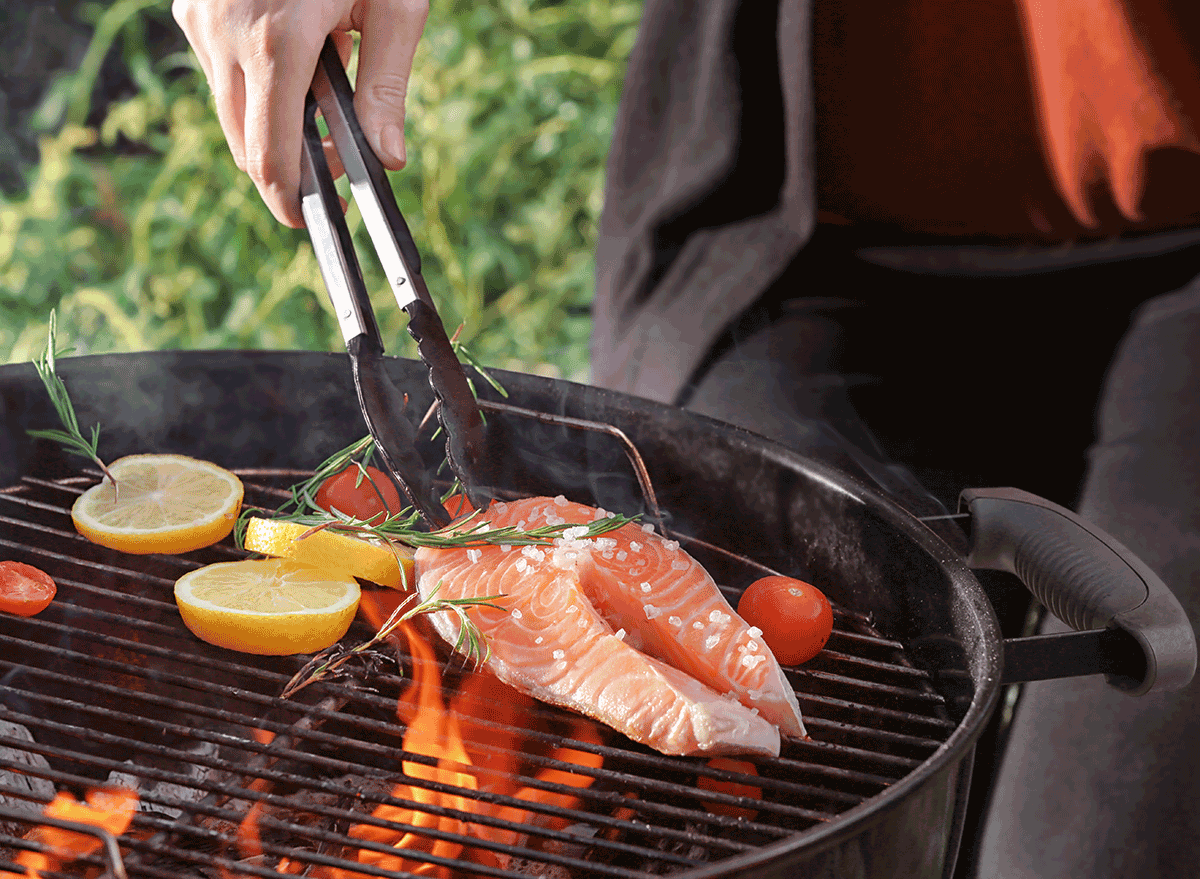
Men love steak, but they should also opt for a file of salmon every few days, too! Why? The fish provides a uniquely rich source of heart-healthy, omega-3 fatty acids.
"While you will get omega-3s from walnuts and flax seeds, it's in the form of ALA, which has a poor conversion rate in the body to the active forms of omega-3, EPA and DHA," says Jones.
If you truly want to get enough of these forms, it's important to include fatty fish or even algae in your diet twice a week. This can come from salmon, tuna, sardines, and anchovies, just to name a few. "Just be mindful that albacore and yellowfin tuna are high in mercury, so if that's your go-to, choose chunk light tuna instead," she says.
Inlcuding too much animal fat in your diet
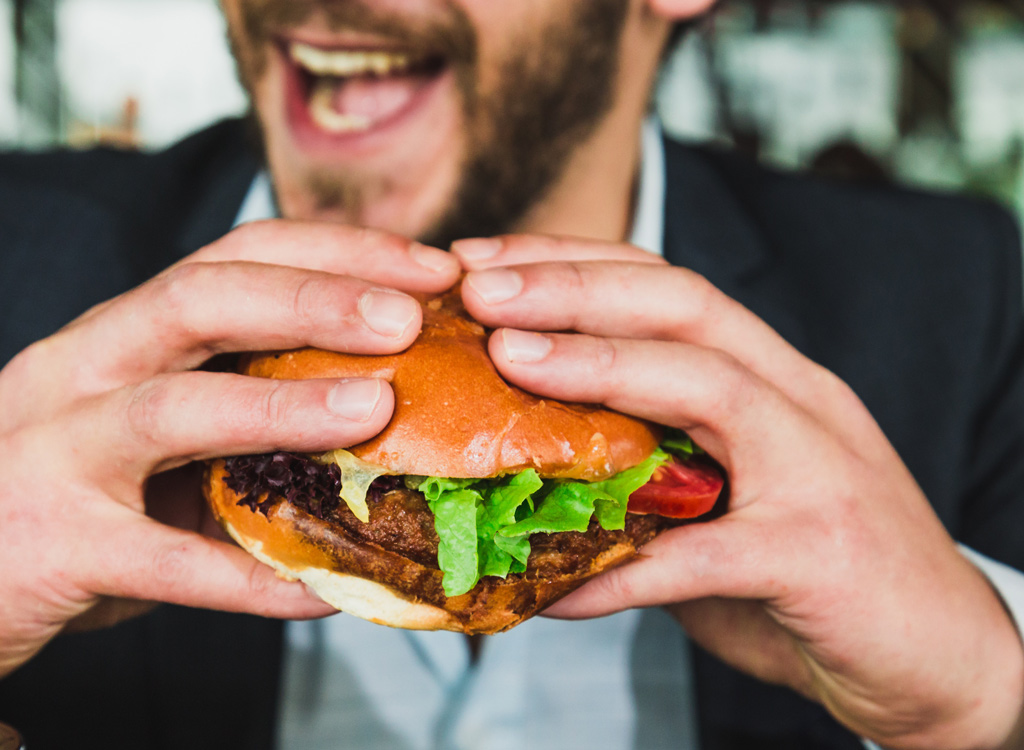
Misconceptions about how the keto diet actually works have often caused men to adopt a diet that's too rich in animal proteins and animal fats—which can be problematic for your overall health. As Jones says, "High intake of saturated fat is strongly associated with an increased risk of heart disease, while low intake of animal proteins and animal fat is associated with improved heart health and longevity." (Related: What Eating Red Meat Every Day Does to Your Body.)
Eating in the car

Not only does eating while driving pose a safety issue, but it can also make you eat more calories than you otherwise normally would. "Distracted eating will leave you unsatisfied and potentially looking for more food," says Lauren Harris-Pincus, MS, RDN, and author of "The Protein-Packed Breakfast Club." Try to give your meal your full attention and be conscious of those hunger cues.
Partaking in late-night munching

Late-night noshing can contribute to weight gain as well as elevated blood sugar and cholesterol levels.
"Our bodies process food better earlier in the day when we are active versus later at night when our digestive system is preparing for sleep," says Harris-Pincus. Our advice? Try to shift your eating window to an earlier slot in the evening. Or, consider eating a larger breakfast and lunch and a smaller dinner.
Going overboard on portions

Not paying attention to portions is a very easy way to pack on extra pounds—even if it's healthier foods.
"Aside from the obvious, like eating too many cookies or a whole pint of ice cream, there can be too much of a good thing when it comes to healthy foods such as avocado, nuts, protein, and healthy fats," says Harris-Pincus.
Relying on takeout too often during the week

Routinely ordering takeout instead of cooking at home means you may be consuming larger portions, which more often than not also translates to more calories, fat, and sodium.
"Try to cook more at home with less processed ingredients or at least check out the nutrition information of your restaurant food if available," says Harris-Pincus. "If possible, save half for another meal or add more veggies, like a side salad to your pizza."
Drinking too much alcohol

"While the recommendation has been no more than 2 drinks per day for men, the forthcoming 2020 U.S. Dietary Guidelines may lower that amount to 1 drink per day," says Harris-Pincus.
For context, that's equal to one 12-ounce beer, 1.5 ounces of liquor, and 5 ounces of wine. With these new guidelines, you can see how easy it is to overindulge in alcoholic beverages each week.
For more, be sure to check out What Happens To Your Body When You Give Up Alcohol.


